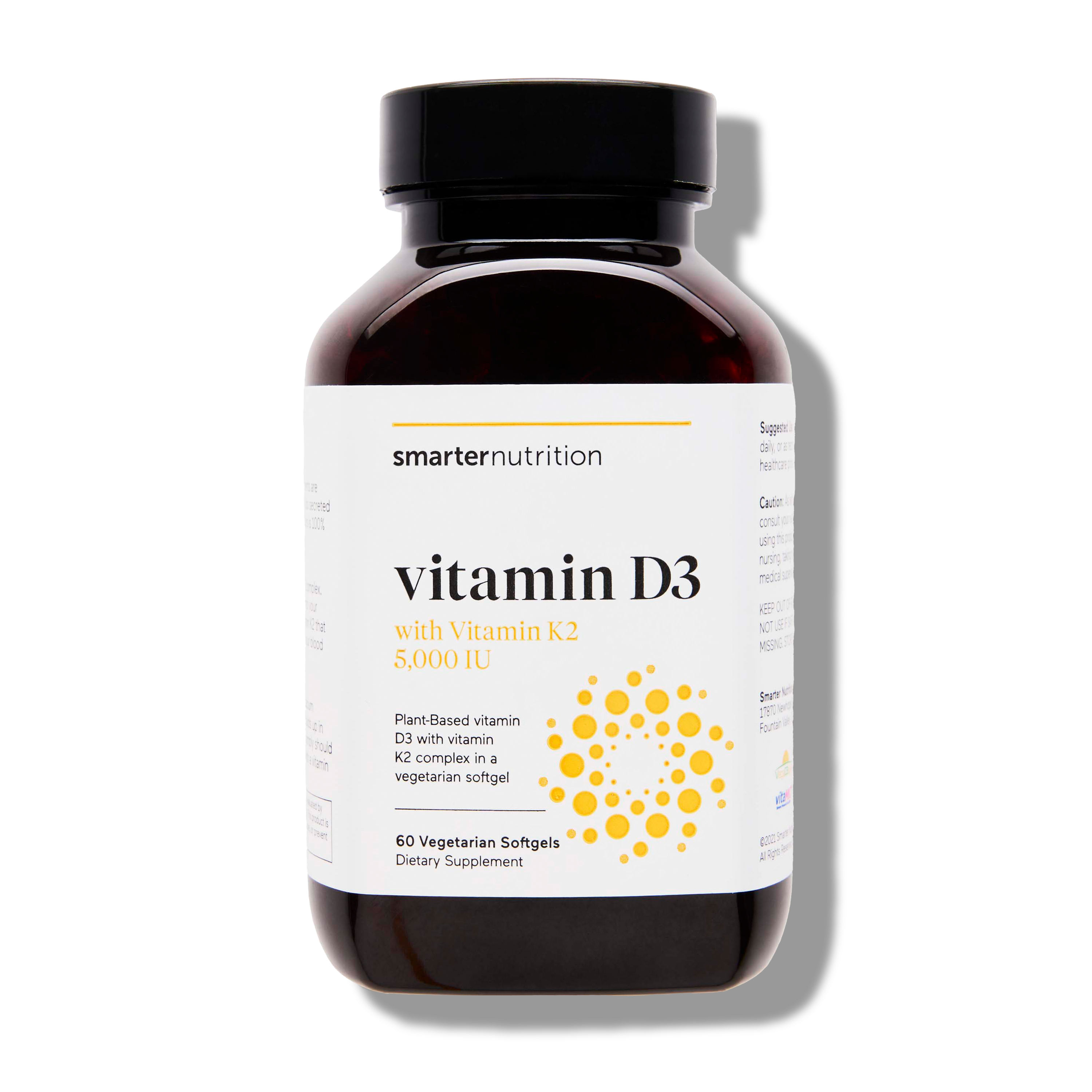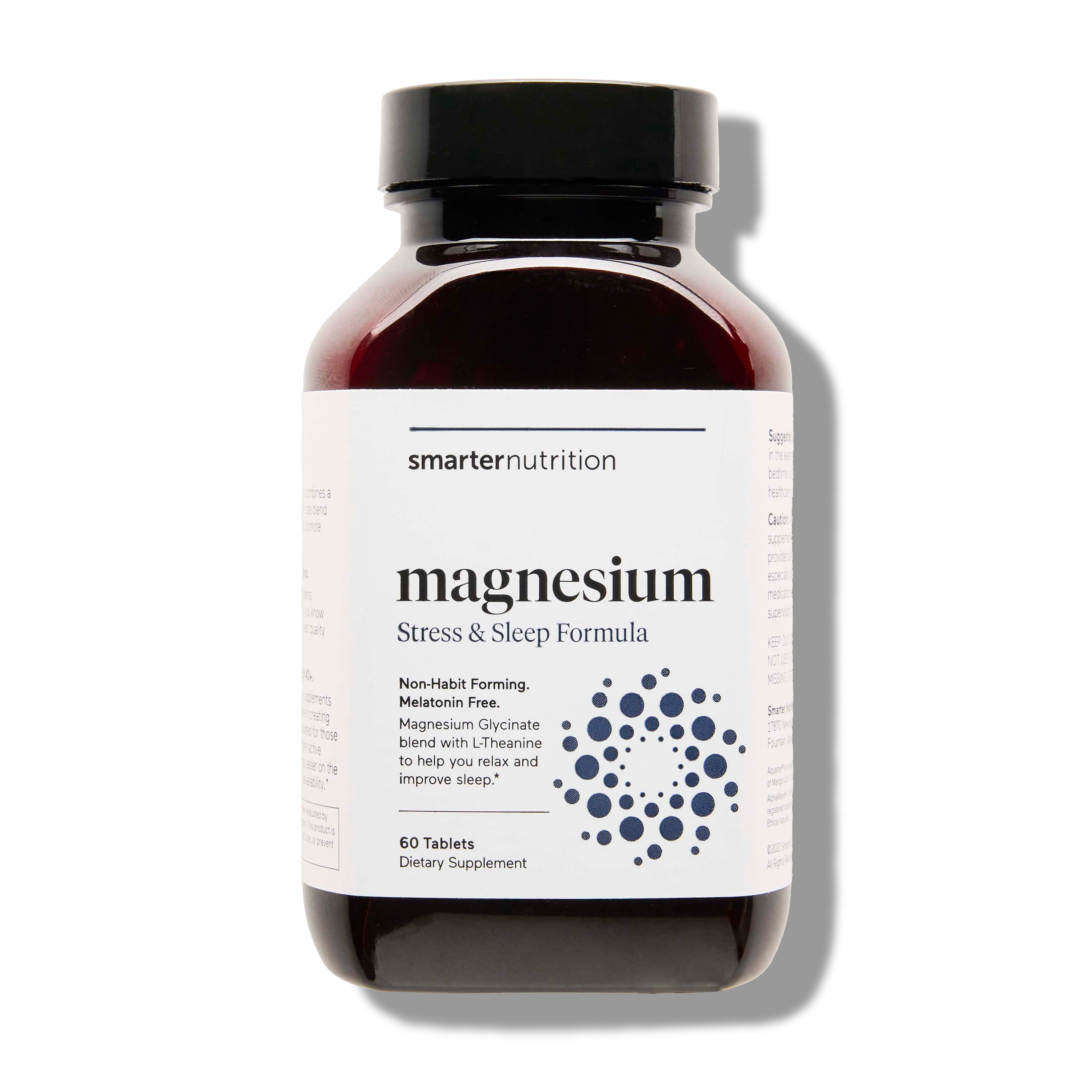Why Your Body Needs More Magnesium After 40
While our mantra is “age is just a number,” sometimes the body needs a little extra help to keep up! It can be difficult to eat enough foods with magnesium at any age, but when we get older it becomes even more challenging. In fact, more than 40% of people in the US don't get the recommended daily amount of magnesium through food. The body can start experiencing an increased deficiency as we age due to changes in urination, intestinal absorption, and bone health. Over time, the body tends to absorb less magnesium from food, the kidneys may emit more magnesium during urination, and a decreased appetite can cause a natural decline in nutrients overall through daily diet.
Why Magnesium is Important to the Body
Magnesium is considered a macromineral, which means the body needs a large amount of it to support optimal health. Magnesium is necessary for normal blood sugar and blood pressure levels, a good night’s sleep, relaxation, balanced electrolytes, muscle and nerve transmission, normal immune function, and to transport and influence other nutrients. Magnesium is paramount when it comes to the normal health of the structures and functions in the body.

Symptoms of Magnesium Deficiency
- 1. Muscle Cramps: If your muscles experience twitches, tremors, or cramps, you may be magnesium deficient. Researchers believe an increased flow of calcium can move into nerve cells and make muscle nerves overstimulated.
- 2. Mental Health Issues: A typically caring person may switch to feelings of apathy and delirium.
- 3. Fatigue: Severe or persistent physical or mental exhaustion or weakness may be a sign of magnesium deficiency.
- 4. Irregular Heartbeat: According to researchers, magnesium deficiency can alter the balance of potassium levels inside and outside of heart muscle cells, causing an arrhythmia or heart palpitations.
- 5. Decreased Bone Density: Magnesium deficiency may increase the risk of osteoporosis and bone fractures.

The Benefits of Healthy Magnesium Levels
Every cell in the body contains magnesium and needs it to function. Here are a few benefits the body enjoys when it has optimal magnesium levels.
- Move Easier: Magnesium helps support the body during exercise by moving blood sugar into the muscles and preventing lactate from building up during exercise and causing fatigue. Studies show that magnesium supplementation may be especially beneficial to support normal exercise performance in older adults and those who are magnesium deficient.
- Feel Happier: Magnesium is vital for normal brain function and mood; a deficiency may be linked to depression.
- Regulate Blood Sugar: Magnesium may be necessary for the body to regulate blood sugar; studies suggest about 48% of people with type 2 diabetes also have low levels of magnesium.
- Heart Health: The body needs magnesium to keep the heart healthy and strong.
- Bone Health: At least half of the magnesium in the body is located in the bones, Magnesium is crucial for maintaining bone health and protecting against bone loss.
- Sleep Better: Many people turn to magnesium to help them sleep better. Because magnesium regulates multiple neurotransmitters that influence sleep, it’s known to help support normal sleep quality and time.
- Support Digestion: Magnesium activates the enzymes responsible for helping the body absorb and utilize fats, proteins, and carbohydrates during digestion. When the body lacks magnesium, it has a harder time breaking down food into smaller particles for energy.
Supplement Smarter
While it can be difficult to get enough magnesium from food, Smarter Magnesium delivers your daily serving in 3 small softgels. Smarter Magnesium is formulated with magnesium derived from marine sources that are known to be resistant to temperature and humidity. AstraGin®, a patented, 100% natural compound, is added to help make magnesium easier for the body to absorb.
Sources:
-
Chesak, Jennifer. “Why Magnesium Levels Decline With Age & What To Do About It.” Mind Body Green. 2022.
https://www.mindbodygreen.com/articles/magnesium-with-age
-
Hayes, Kim. “Are You Getting Enough Magnesium?” AARP. 2018.
https://www.aarp.org/health/healthy-living/info-2018/magnesium-benefits-fd.html
-
Arnarson, Atli BSc, PhD. “7 Signs and Symptoms of Magnesium Deficiency.” Healthline. 2022.
https://www.healthline.com/nutrition/magnesium-deficiency-symptoms
-
Link, Rachael and Spritzler, Franziska. “12 Evidence-Based Health Benefits of Magnesium.” Healthline. 2022.
https://www.healthline.com/nutrition/magnesium-benefits#TOC_TITLE_HDR_2
-
Buckner, Derek. “Magnesium & Digestion.” Healthfully. 2017.
https://healthfully.com/magnesium-digestion-7942149.html




